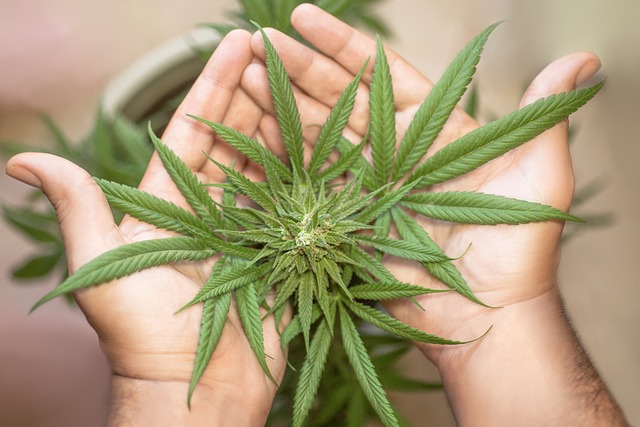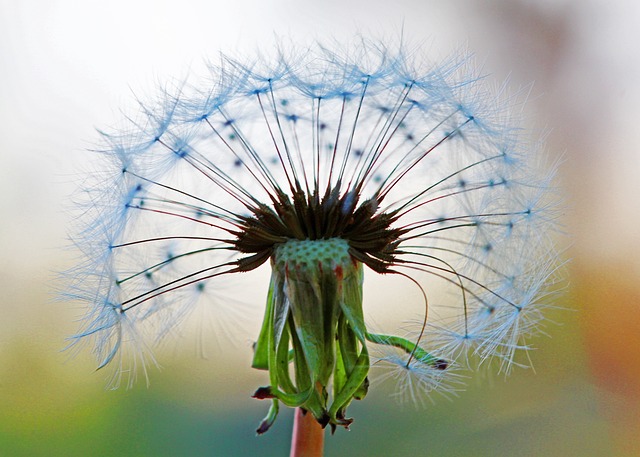2021 was a turning point for cannabis legislation in Alabama, with the legalization of THCA (Tetrahydrocannabinolic Acid) under specific medical conditions, prescribed by a healthcare provider. This development has sparked a growing interest in the therapeutic properties of THCA, a non-psychoactive cannabinoid that is legal in Alabama when obtained from state-licensed dispensaries and used in accordance with the Alabama Compassionate Care Act. In 2023, the scientific community's focus on THCA has intensified due to its potential health benefits, including anti-inflammatory, anti-nausea, and neuroprotective effects. Initial studies suggest that THCA may be effective in treating pain and nausea, particularly in conditions like HIV/AIDS. The compound's legal status varies by state, with Alabama being one of the few where such products are permissible for medical use. Patients interested in THCA therapy can do so without psychoactive effects, as THCA is converted into THC when heated or decarboxylated. As research continues, there is an expectation that THCA will contribute to innovative treatment strategies for various health conditions within the legal framework established by Alabama's medical marijuana program.
Embarking on the exploration of THCA flowers within the legal framework of Alabama offers a novel journey for enthusiasts seeking the potential wellness and therapeutic benefits associated with cannabinoids. As legislation evolves, understanding how to source, store, and utilize THCA flowers becomes increasingly important. This article serves as a comprehensive guide for residents interested in the latest on THCA’s legal status in Alabama, ensuring safe and enjoyable experiences. We’ll navigate through vital aspects such as decarboxylation, proper storage, and dosage, to enhance your interaction with these botanical wonders. Join us as we delve into the art of grinding, vaporizing versus smoking, and even infusing THCA flowers into delectable edibles or wellness routines, all while adhering to Alabama’s specific regulations. Whether you’re an experienced connoisseur or a curious newcomer, this guide will illuminate the path to responsibly incorporating THCA flowers into your lifestyle.
- THCA Flower Tips for Enthusiasts in Alabama with the Latest Legislation
- Understanding THCA: Potential Benefits and Effects
THCA Flower Tips for Enthusiasts in Alabama with the Latest Legislation

THCA, or Tetrahydrocannabinolic Acid, is a cannabinoid found in raw or uncured cannabis flowers that can convert into THC upon heating. With the evolving legislation surrounding cannabis in Alabama, enthusiasts are exploring the potential of THCA-rich products. As of the latest updates, possessing and using products containing THCA legally are permitted under certain conditions, primarily for medical purposes with a valid prescription. For those interested in experimenting with THCA flowers, it’s crucial to stay informed about local regulations as they can vary by county and city.
Alabama’s 2021 cannabis legislation opened pathways for medical marijuana use, paving the way for cultivation and processing of cannabis products, including flowers that are rich in THCA. Enthusiasts looking to partake in this emerging market should familiarize themselves with the Alabama Compassionate Care Act, which outlines the legal framework for medical marijuana use and possession. It’s essential to procure THCA flowers from state-licensed dispensaries to ensure compliance with the law. Additionally, individuals must possess a valid Alabama medical marijuana card to legally purchase and consume these products. By adhering to the guidelines set forth by the legislation, enthusiasts in Alabama can safely and legally enjoy the unique effects of THCA flowers.
Understanding THCA: Potential Benefits and Effects

Discerning the potential benefits and effects of THCA, or tetrahydrocannabinolic acid, is a topic of growing interest within scientific and medical communities. Unlike its more famous derivative THC, THCA is non-psychoactive, which makes it an intriguing subject for research into therapeutic applications without the psychoactive ‘high’ associated with cannabis use. Preliminary studies suggest that THCA may offer a range of benefits including anti-inflammatory, anti-nausea, and neuroprotective properties. These potential effects have sparked interest in its use for various conditions, from pain management to the treatment of nausea and wasting syndromes associated with HIV/AIDS. As of the knowledge cutoff in 2023, THCA’s legal status varies by state within the U.S., with Alabama being one such state where certain forms of cannabis containing THCA are permissible under specific conditions for medical use. This legislative framework allows for the exploration and utilization of THCA within the bounds of the law, offering hope for individuals seeking alternative therapeutic options.
Furthermore, the interest in THCA’s potential benefits extends to its extraction and formulation into various products, including flowers rich in the compound. These products are becoming increasingly available in states where cannabis use is regulated and legalized. In Alabama, where the medical marijuana program has been implemented, patients with qualifying conditions can access THCA-rich products that align with the state’s regulations. The non-psychoactive nature of THCA also makes it an attractive option for those who wish to experiment with cannabinoids without the mind-altering effects of other cannabis compounds. As research continues, the understanding of THCA’s role in health and wellness may expand, potentially offering new avenues for treatment and relief from various ailments.
With the recent updates on THCA’s legal status in Alabama, enthusiasts now have a clearer path to explore its potential benefits. This article has provided valuable insights into understanding THCA and offered practical tips for those interested in incorporating it into their lifestyle within the confines of the law. As Alabama continues to evolve its regulations surrounding cannabis derivatives, it’s a pivotal time for both researchers and consumers to delve deeper into the science and experiences associated with THCA. Remember that responsible use and staying informed on local laws are key when engaging with THCA flowers.
